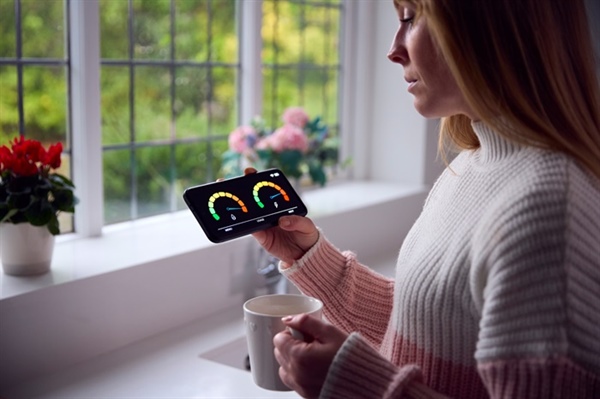Smart Homes & Environmental Sustainability

Revience is dedicated to helping homeowners embrace the future of sustainable living through cutting-edge smart home solutions. From reducing energy consumption to integrating eco-friendly technologies, their expertise ensures your home becomes a model of efficiency and environmental responsibility.
With a range of automation services, Revience empowers you to create a home that aligns with both modern convenience and sustainability goals.
How Does Home Automation Contribute to Sustainability?
Home automation promotes sustainability by optimizing energy use and reducing waste. Smart devices such as programmable thermostats, energy-efficient lighting, and intelligent power strips automatically adjust based on user habits, eliminating unnecessary energy consumption.
For instance, a smart thermostat can help a homeowner's schedule to reduce heating or cooling when the house is empty, leading to significant energy savings.
Additionally, automation systems can integrate renewable energy sources like solar panels into the home grid. These systems monitor energy production and consumption in real time, ensuring efficient resource usage.
Such features cut utility bills and decreased overall environmental impact by reducing dependency on non-renewable energy sources.
Homeowners can actively contribute to a sustainable future by adopting smart home technologies. To learn more about creating a smart home, explore various automation solutions offered by Revience.
The Role of Smart Homes in Reducing Carbon Footprint
Smart homes reduce carbon footprints by addressing energy efficiency, water conservation, and waste reduction. Intelligent climate control systems optimize heating and cooling, preventing the overuse of energy-intensive appliances. Similarly, smart irrigation systems adjust water usage based on weather forecasts and soil moisture, conserving water resources.
Smart energy meters support sustainability by providing detailed insights into energy consumption patterns. These insights help homeowners make informed decisions about reducing electricity usage during peak hours and lowering emissions from power plants.
The integration of smart appliances like energy-efficient refrigerators and washing machines also contributes to reducing carbon emissions.
By leveraging these technologies, smart homes offer an effective strategy for achieving net-zero carbon emissions and fostering an environmentally responsible lifestyle.
Eco-Friendly Technologies in Smart Home Design
Eco-friendly technologies are at the heart of sustainable smart home design. Energy-efficient lighting, such as LED bulbs integrated with smart controls, consumes significantly less power than traditional options.
Smart windows with electrochromic glass adjust tint levels based on sunlight, reducing the need for artificial lighting and air conditioning.
Smart home automation systems also incorporate smart water heaters that heat water on demand, eliminating standby energy losses. Advanced waste management systems with automation features ensure better recycling and composting practices within homes.
Moreover, using renewable materials in smart devices and construction supports eco-friendly goals.
By combining innovation and sustainability, these technologies improve living standards and align with global environmental objectives.
How to Make Your Home Greener With Automation
Making your home greener with automation starts by identifying high-impact areas like energy use, water consumption, and waste management.
Begin with a smart thermostat that can reduce heating and cooling costs by learning your routines. Integrating smart lighting systems allows lights to turn off automatically when rooms are unoccupied.
Another step is to adopt smart power strips and plugs, which prevent phantom energy consumption by cutting power to devices in standby mode.
Water-saving devices, such as smart irrigation systems and leak detectors, ensure responsible water use. Combining these with renewable energy systems like solar panels further enhances your home's green credentials.
Revamping your home with automation technologies can bring significant environmental and financial benefits, creating a sustainable and cost-effective living environment.
The Impact of Smart Homes on Long-Term Sustainability
Smart homes significantly impact long-term sustainability by fostering energy independence, reducing environmental degradation, and promoting resource conservation.
Adopting renewable energy systems and efficient energy management will minimize reliance on fossil fuels over time, supporting broader goals of reducing greenhouse gas emissions.
Automated systems also enhance the durability and functionality of home appliances, reducing the need for frequent replacements and lowering electronic waste. Smart homes are equipped to adapt as technology evolves, making them resilient to future environmental challenges.
By investing in smart home technologies, homeowners can create a sustainability legacy that benefits their families and the planet for generations to come. To learn more, visit Revience's website and explore their solutions tailored to sustainable living.
How Revience Can Help
If you're ready to transform your living space into a sustainable haven, contact Revience today. Our team can guide you through smart automation options tailored to your needs.
Whether you're looking to install a smart thermostat, enhance lighting efficiency, or explore comprehensive home automation systems, Revience has you covered.
For more information, contact us online. Take the first step toward a smarter, greener home with Revience’s innovative solutions.